QuestionMy daughters tortoise has not been hardly eating for about 5 months. She took it to the vet and it gave it a shot of Gentimiacine in the front leg, thinking that might possibly help as the vet really couldn't find anything wrong with her. She has been eating like a cup of Romaine lettuce per feeding prior to her loss of appetite. Presently I have been blending her food and force feeding her this past week. Now doing this she isn't going to the bathroom. I am real worried about her.
She has been on the UV blue lighting during the winter months but I stop using it as it is getting warm now. We live in the 5000 ft. elevation.
She is 11 years old and we have had her and a male that died about 8 months ago since just a few months of age. He had stopped eating as well and we thought she might have not been letting him eat but before we separated them he had died.
A couple of months went by and she had began to show similiar signs of loss of appetite and inactivity. Now I am left to figure out what is really going on. I do plan to take her back to the vet but am wondering if there is anything you might be able to tell us could be happening.
Till now we have never had a probem and would sure hate to think we lost both the tortoises due to something we had neglected to due.
Thanks so much for your time and consideration.
AnswerHi Adrienne,
The first thing you should look at in a situation like this is husbandry. Tortoises are pretty tough and will survive amazing odds, but eventually incorrect husbandry will catch up with them. Even if your tortoise has appeared to be "fine" up to now, it's likely that something in the way you keep her needs to be fixed and that will improve her appetite and activity. So let's go over that first:
1) The enclosure should be roomy, open, and allow for good air circulation. Tortoises need room for exercise. Tanks don't work well because it's harder to establish a proper heat gradient in them and for a sulcata they're much too small anyway. Ideally a tortoise should be housed outside for the summer months, and at some point a sulcata will need year-round outdoor accommodations (a large pen with heated shed).
2) Substrate needs to hold some moisture to prevent dehydration from the basking lamp. A mix of half coir and half playsand is excellent and can be kept slightly damp on the warmer side. Sulcata should not be kept completely dry! In the wild they spent hot days in burrows where the humidity is much higher than on the surface. A dehydrated tortoise will develop bladder stones and need advanced veterinary care.
3) There should be a basking temperature of 90-95 degrees and a cooler area of about 75 degrees. These temperatures are very important. Too warm or cool, and a tortoise won't eat. A good source of UVB is vital unless the tortoise spends a good deal of time outside. I suspect this is part of your problem, as "UV blue lighting" probably doesn't have any UVB in it. To be honest, I'm not even sure what it is. You need a specialized bulb, and I would recommend getting a T-Rex Active UV heat bulb. You can order one at www.carolinapetsupply.com. It'll cost you about $50, but is an excellent UVB bulb and supplies heat as well. I'd advise against going to a pet store and asking for a UVB bulb, because they rarely have a clue about tortoises and may sell you something that's basically useless.
4) Sulcata need a diet that's mostly (70%) grasses/hay and the rest leafy greens and weeds (turnip, dandelion, collards, mustard, kale; weeds such as chicory, dandelion, sow thistle, mallow, plantain, etc.). No veggies, no fruit, no pellets. Romaine is pretty poor nutritionally, but is OK as part of a *varied* diet. If your tortoise has been eating all or mostly romaine, she is probably suffering from malnutrition on top of the UVB issue.
The good news is that dietary insufficiency can be corrected, although any damage that's already been done will remain. Please stop trying to force feed; if done incorrectly, the tortoise will aspirate food into the lungs and develop pneumonia. Force feeding is also very stressful. If you take the tortoise back to the vet (and I wouldn't until any husbandry issues have been corrected), don't allow any vitamin shots (too easy to overdose and correctable through diet) or antibiotics without a specific diagnosis. A one-time antibiotics injection is useless.
Here's a link to a good website you can read over: www.africantortoise.com.
Here's a link to pictures of abnormal vs. normal shell growth: http://africantortoise.com/pyramiding_in_tortoises.htm
Please post back with any questions at all.

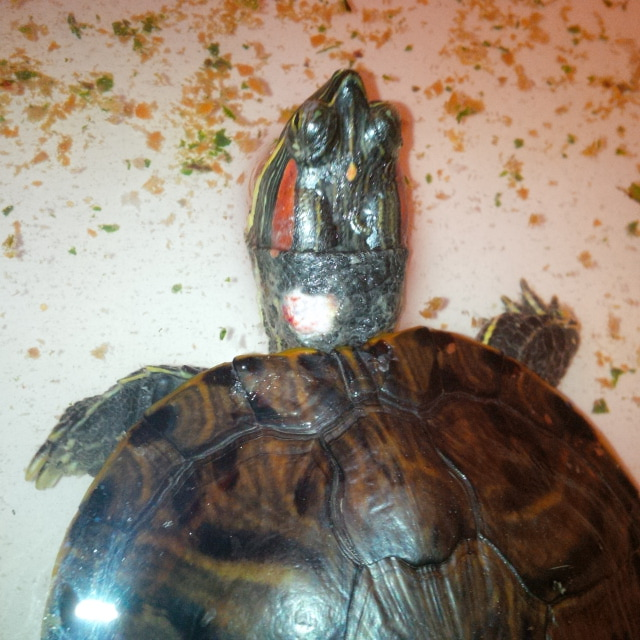 Turtle Skin Sore
Question
turtle
Hi,
I have two red eared slider
Turtle Skin Sore
Question
turtle
Hi,
I have two red eared slider
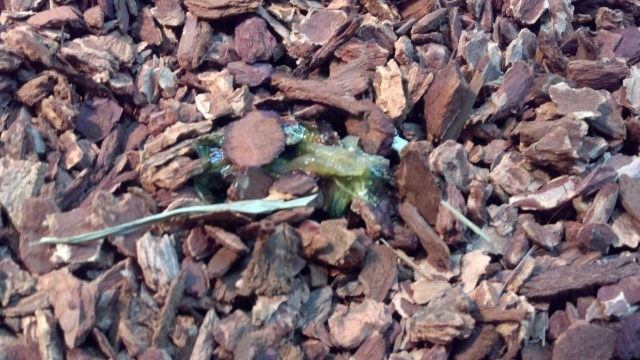 Dead tortoise
Question
Tortoise vomit? Dead tortoise
Abo
Dead tortoise
Question
Tortoise vomit? Dead tortoise
Abo
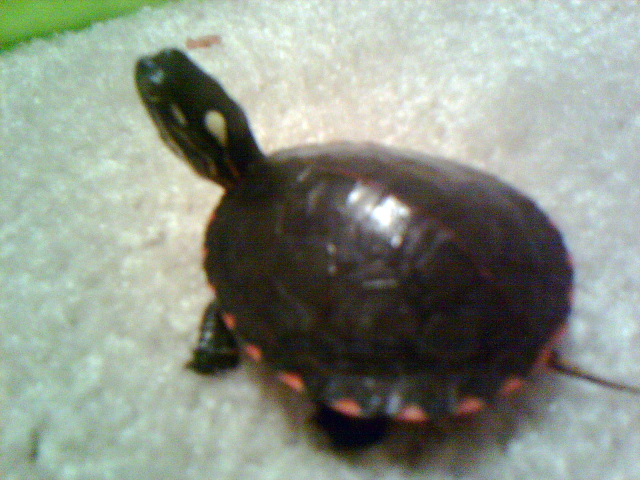 Could my turtle have an eye infection?
QuestionQUESTION: Me and my friend found this little tu
Could my turtle have an eye infection?
QuestionQUESTION: Me and my friend found this little tu
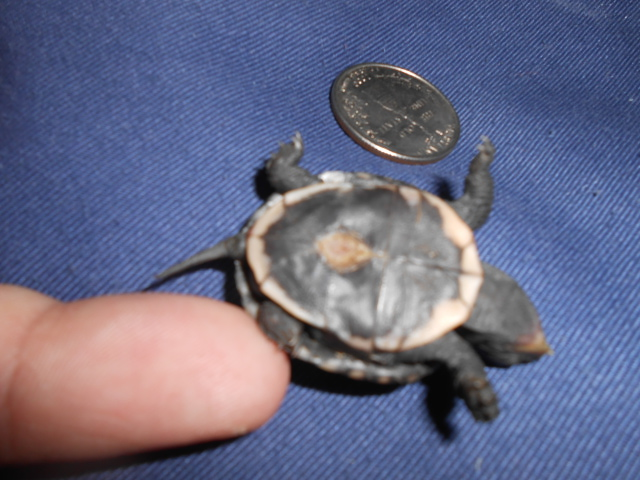 identifying a hatchling
Question
Turtle Turtle2
I found a turtle o
identifying a hatchling
Question
Turtle Turtle2
I found a turtle o
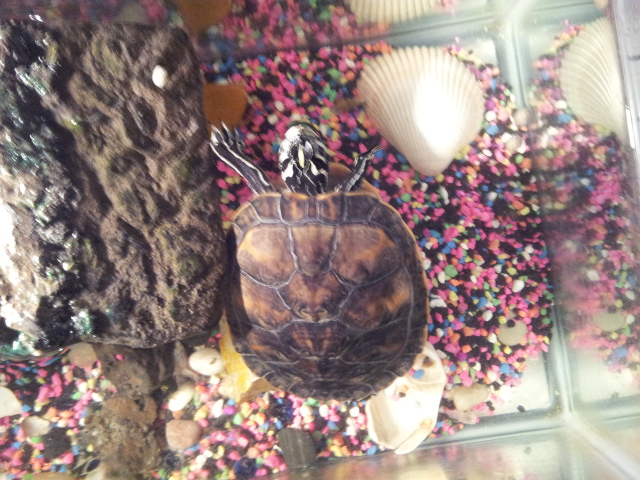 Painted turtle house pet issue
QuestionQUESTION: Our pet turtle that was found in our
Painted turtle house pet issue
QuestionQUESTION: Our pet turtle that was found in our